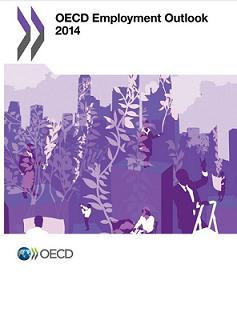Melitz, J. (2014) “The discontented members of the Eurozone should consider very seriously the creation of a second euro“, LSE EUROPP Blog, 04 Σεπτεμβρίου. Since the height of the Eurozone crisis, a number of reforms have been pursued to stabilise the economic situation in states using the single currency. In an interview with EUROPP’s editor Stuart Brown, Jacques Melitz outlines why the Eurozone is still suffering from two key …Read More
An Investment New Deal for Europe
Derviş, Κ. & Saraceno, F. (2014) “An Investment New Deal for Europe“, Brookings Blog, 03 Σεπτεμβρίου. Six years into the crisis, the eurozone remains the sick man of the world economy. Its GDP today is barely at the pre-crisis level, deflation looms and the difference between the healthier core and a struggling periphery is not resolved. Moreover, even Germany may be slowing down, and Finland is in persistent recession. …Read More
Investing for Europe’s Future
Szczurek, M. (2014) “Investing for Europe’s Future“, VoxEU Organisation, 05 Σεπτεμβρίου. The ‘lost decade’ is not a scenario for the EU, it’s the baseline forecast. In this column, Polish Finance Minister Mateusz Szczurek calls for an EU-wide public investment programme of 5.5% of GDP to overcome the constraints behind Europe’s ‘secular stagnation’. He calculates that €700 billion of capital expenditures could close the output gap in the short term …Read More
The political economy of regional policy and industrial location
Wiberg, Μ. (2014) “The political economy of regional policy and industrial location“, VoxEU Organisation, 03 Σεπτεμβρίου. Regional policy is a primary expenditure item for many countries. A substantial share of the regional policy budget is allocated to firms in poor regions. This column argues that electoral concerns and rent-seeking behaviour bias regional policy in favour of smaller regions. However, this bias lowers total welfare. The EU spends €130 billion …Read More
Forget the dodgy numbers: Leaving the EU makes economic sense
Leach, G. (2014) “Forget the dodgy numbers: Leaving the EU makes economic sense“, City A.M. free daily business newspaper, 28 Μαΐου. UKIP’S recent electoral triumph has reignited debate about the cost of Britain’s place in the EU. But what do we know about the economics of our membership? Let’s start from the beginning: we’ll find that Brexit has long made economic sense. Prior to joining the then Common Market …Read More
OECD Employment Outlook 2014 – Editorial
OECD (2014) OECD Employment Outlook 2014 – Editorial, OECD Publishing. Both more and better jobs are needed for an inclusive recovery from the crisis More and better jobs are needed to lower unemployment and improve well-being Despite recent improvements, further progress in labour market conditions remains largely dependent upon a broader and sustained economic recovery. Although unemployment has declined in response to renewed job creation, large job gaps remain …Read More
OECD Employment Outlook 2014
OECD (2014) OECD Employment Outlook 2014, OECD Publishing. The 2014 edition of the OECD Employment Outlook reviews recent labour market trends and short-term prospects in OECD and key emerging economies. It zooms in on how the crisis has affected earnings, provides country comparisons of job quality, examines the causes and consequences of non-regular employment, and estimates the impact of qualifications and skills on labour market outcomes. How does GREECE …Read More
The Global Competitiveness Report 2014–2015
Schwab, K. (2014) “The Global Competitiveness Report 2014–2015“, World Economic Forum, 03 Σεπτεμβρίου. The Global Competitiveness Report 2014-2015 assesses the competitiveness landscape of 144 economies, providing insight into the drivers of their productivity and prosperity. The Report series remains the most comprehensive assessment of national competitiveness worldwide.
Europe is entering the ‘age of the referendum’, but there is nothing to fear for European democracy if referendums are properly regulated
Tierney, S. (2014) “Europe is entering the ‘age of the referendum’, but there is nothing to fear for European democracy if referendums are properly regulated“, LSE EUROPP, 02 Σεπτεμβρίου. Referendums have become increasingly common occurrences in European states in recent decades. Stephen Tierneywrites on some of the potential benefits and dangers of using referendums to solve key constitutional questions. He writes that while referendums can undermine democracy if used …Read More
The wrong medicine, The Eurozone’s remedies against sluggish growth rates aren’t working. The problem: a misdiagnosis of the illness
De Grauwe, P. (2014) “The wrong medicine, The Eurozone’s remedies against sluggish growth rates aren’t working. The problem: a misdiagnosis of the illness“, The European Magazine, 26 Αυγούστου. At the start of 2014 there was some hope that the economic recovery in the Eurozone would gather momentum. This hope has dissipated as the year has progressed. The slow growth in the Eurozone has become endemic since the start of …Read More








